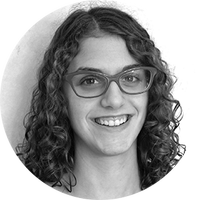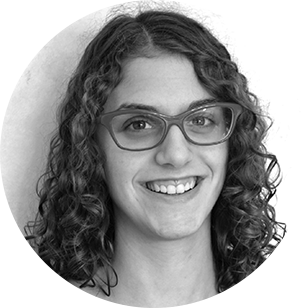A white man couldn't get his poem published, so he made up a Chinese pen name — and it worked


A free daily email with the biggest news stories of the day – and the best features from TheWeek.com
You are now subscribed
Your newsletter sign-up was successful
Writers are nothing if not persistent. Michael Derrick Hudson, a white man from Indiana — and a genealogist, no less — decided it would be appropriate to fake his racial background in the interest of publishing a poem he authored. After getting 40 rejections to his submission, "The Bees, the Flowers, Jesus, Ancient Tigers, Poseidon, Adam and Eve," Hudson needed a new strategy, The Washington Post reports.
So he took to submitting his work under a Chinese-American pen name, Yi-Fen Chou. Lo and behold, it was accepted into the Fall 2014 issue of the literary journal Prairie Schooner, along with a couple of Hudson's other pieces. From there, "The Bees" wound up in a pile of recommendations for the 2015 edition of The Best American Poetry, out Tuesday. It was 1 of 75 poems fellow poet and judge Sherman Alexie selected for the anthology in a field of more than 1,000.
After getting word of the poem's placement, Hudson wrote to Alexie to reveal his ruse, as detailed in Hudson's bio, but the judge didn't pull the entry. Heated debate ensued.
The Week
Escape your echo chamber. Get the facts behind the news, plus analysis from multiple perspectives.

Sign up for The Week's Free Newsletters
From our morning news briefing to a weekly Good News Newsletter, get the best of The Week delivered directly to your inbox.
From our morning news briefing to a weekly Good News Newsletter, get the best of The Week delivered directly to your inbox.
"If I'd pulled the poem then I would have been denying that I gave the poem special attention because of the poet's Chinese pseudonym," Alexie wrote in a blog post Monday, acknowledging that his first instinct was to pull it. "If I'd pulled the poem then I would have been denying that I was consciously and deliberately seeking to address past racial, cultural, social, and aesthetic injustices in the poetry world."
Alexie's full explanation is here, and well worth reading for its thought-provoking points on identity politics and publishing ethics.
A free daily email with the biggest news stories of the day – and the best features from TheWeek.com
Julie Kliegman is a freelance writer based in New York. Her work has appeared in BuzzFeed, Vox, Mental Floss, Paste, the Tampa Bay Times and PolitiFact. Her cats can do somersaults.
-
 How the FCC’s ‘equal time’ rule works
How the FCC’s ‘equal time’ rule worksIn the Spotlight The law is at the heart of the Colbert-CBS conflict
-
 What is the endgame in the DHS shutdown?
What is the endgame in the DHS shutdown?Today’s Big Question Democrats want to rein in ICE’s immigration crackdown
-
 ‘Poor time management isn’t just an inconvenience’
‘Poor time management isn’t just an inconvenience’Instant Opinion Opinion, comment and editorials of the day
-
 ‘One Battle After Another’ wins Critics Choice honors
‘One Battle After Another’ wins Critics Choice honorsSpeed Read Paul Thomas Anderson’s latest film, which stars Leonardo DiCaprio, won best picture at the 31st Critics Choice Awards
-
 Son arrested over killing of Rob and Michele Reiner
Son arrested over killing of Rob and Michele ReinerSpeed Read Nick, the 32-year-old son of Hollywood director Rob Reiner, has been booked for the murder of his parents
-
 Rob Reiner, wife dead in ‘apparent homicide’
Rob Reiner, wife dead in ‘apparent homicide’speed read The Reiners, found in their Los Angeles home, ‘had injuries consistent with being stabbed’
-
 Hungary’s Krasznahorkai wins Nobel for literature
Hungary’s Krasznahorkai wins Nobel for literatureSpeed Read László Krasznahorkai is the author of acclaimed novels like ‘The Melancholy of Resistance’ and ‘Satantango’
-
 Primatologist Jane Goodall dies at 91
Primatologist Jane Goodall dies at 91Speed Read She rose to fame following her groundbreaking field research with chimpanzees
-
 Florida erases rainbow crosswalk at Pulse nightclub
Florida erases rainbow crosswalk at Pulse nightclubSpeed Read The colorful crosswalk was outside the former LGBTQ nightclub where 49 people were killed in a 2016 shooting
-
 Trump says Smithsonian too focused on slavery's ills
Trump says Smithsonian too focused on slavery's illsSpeed Read The president would prefer the museum to highlight 'success,' 'brightness' and 'the future'
-
 Trump to host Kennedy Honors for Kiss, Stallone
Trump to host Kennedy Honors for Kiss, StalloneSpeed Read Actor Sylvester Stallone and the glam-rock band Kiss were among those named as this year's inductees
